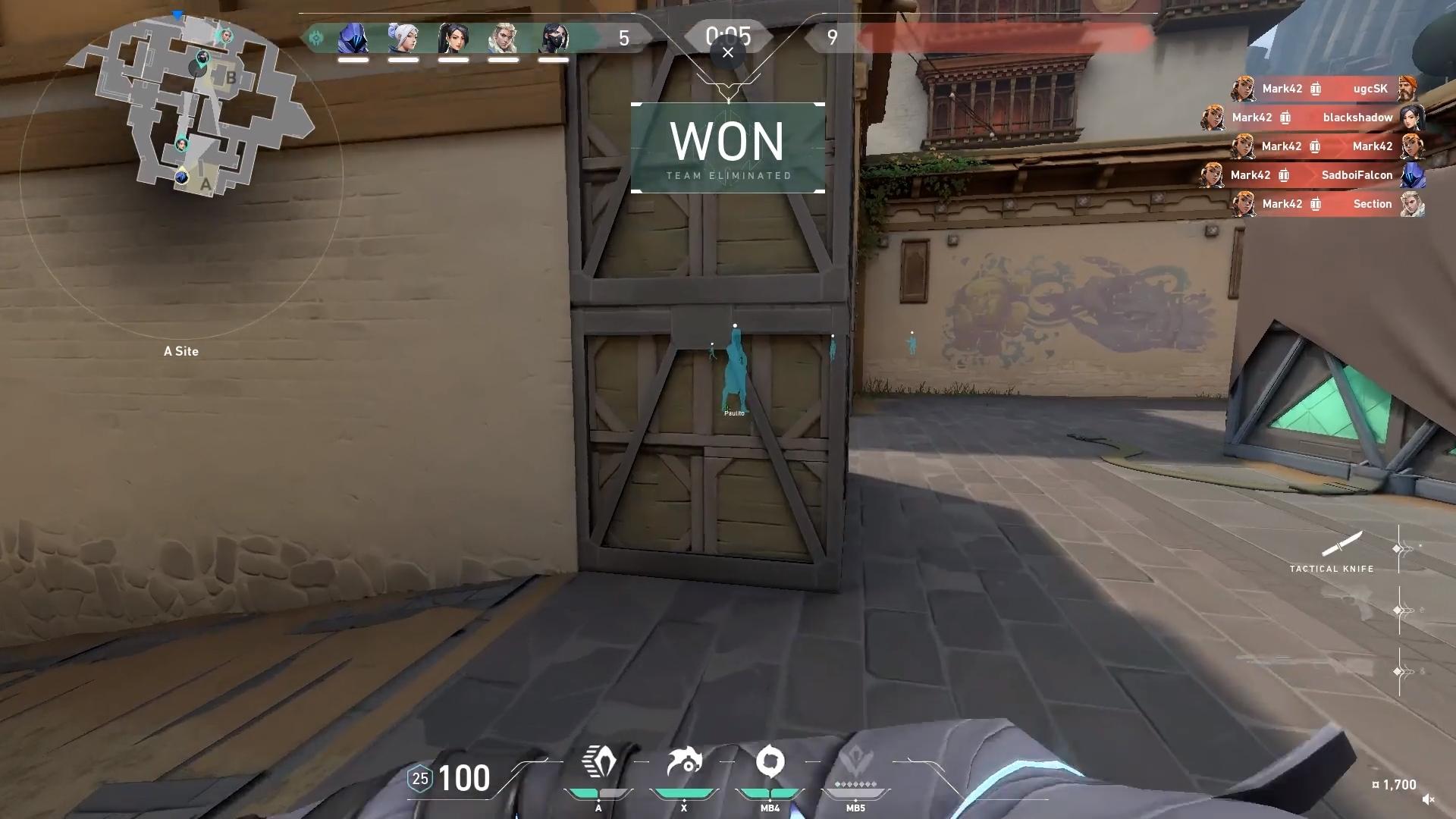Valorant exploit gives teams easy money for losing rounds
 Riot Games
Riot GamesAn exploit in Valorant lets teams deny the opponent extra funds and orbs by quickly ending pistol rounds through a self-destruction technique using agents like Raze or Brimstone.
By using Raze’s Blast Packs and Brim’s Incendiary to self-detonate or burn through their own health bars, teams can end the round before the other has a chance to even engage.
There are no cheats or hacks involved. Instead, it uses the game’s mechanisms to prevent the other team potential resources that they would have likely acquired as the side with superior artillery.
[ad name=”article1″]
 YourAfricanDad via Reddit
YourAfricanDad via RedditOver on the Valorant subreddit one user opened the floor up for discussion wondering if a technique like this should be allowed to be used for not.
“I’m just simply asking if this is prohibited or not,” user ‘YourAfricanDad’ explained. These people in Rank kept losing the pistol fight. Every time they’d lose it, the Brimstone/Raze would just team kill them.”
[ad name=”article2″]
When approaching the other team, they apparently claimed that “everyone does it,” since it lets them start off the following round with a clean 5k credits each.
After a team loses the opening round of the half, they’re left with around 1,900 to 2,500 Creds in the second round to buy with. Naturally, the other team will have more Creds since they won the round and, presumably, carried over some resources to the next.
This usually, but not always, gives the team that won the first half a free round that they can farm even more resources.
[ad name=”article3″]
Since there are no penalties for teamkilling, people are simply killing themselves to at least level the money/orb count for the third round when they would have likely been down 0-2 anyway.
Tactical FPS titles like CS:GO combat this by giving the winning team money for enemy suicides or thwarting team killers by issuing bans that have lengths scaled to the amount of offenses the player commits.
Now people are wondering if Riot Games should implement similar safeguards in Valorant to prevent these kinds of tactics that, while they have their economic benefits, could take away from the competitive aspect of the game.



